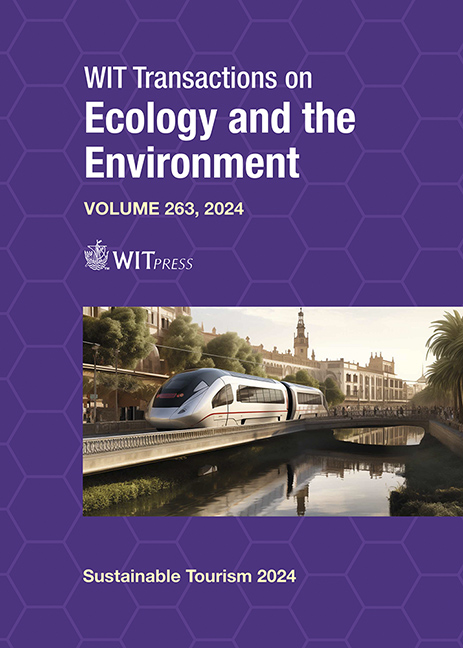DEVELOPING SUSTAINABLE INDIGENOUS TOURISM BASED ON EDUCATION: A COMPARISON BETWEEN JAPAN AND CANADA
Price
Free (open access)
Transaction
Volume
263
Pages
14
Page Range
167 - 180
Published
2024
Paper DOI
10.2495/ST240141
Copyright
Author(s)
LORENZ POGGENDORF, TAKESHI KURIHARA, MIHO HAMAZAKI
Abstract
Since the United Nations recognised the rights of indigenous peoples in 2007, indigenous tourism has received increased attention. This paper compares the situation of the indigenous peoples of northern Japan with that of the indigenous peoples of Canada and related indigenous tourism promotion. For this study, in Japan, citizens of both sexes and all age groups were asked about their knowledge of and interest in the Ainu and their culture. For both countries, academic sources and online information were used to research the handling of settler history, relevant legislation, and the current promotion of indigenous peoples. The results so far show that, despite some recent progress in the targeted promotion of indigenous tourism, Japan is still at the beginning compared to Canada and can learn a lot from Canada in terms of historical reappraisal of its indigenous people.
Keywords
Ainu, Japan, First Nations, Canada, history, government policies, indigenous tourism





